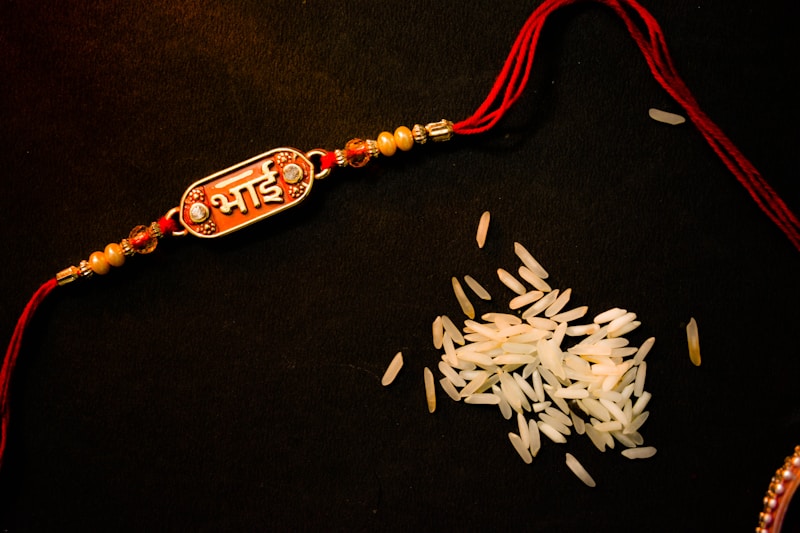Celebrating Love Through Cultural Festivals: A Global Journey
Introduction to Love and Cultural Festivals
Love is a universal feeling that transcends borders, languages, and cultures. One of the most beautiful ways this sentiment is expressed is through cultural festivals. These festivals serve as a vibrant backdrop for people to celebrate love, whether it be romantic love between partners, love for family, or love for the community. In this article, we will explore various cultural festivals around the world that celebrate love, how these events contribute to social cohesion, and the importance of keeping traditions alive.
The Essence of Love in Cultural Celebrations
Cultural festivals act as a canvas where love and affection can be painted in multiple shades. They offer a unique platform that strengthens relationships not only between individuals but also within communities. Festivals such as Valentine's Day, Diwali, and Midsummer evoke intense emotions and rekindle connections that may have faded over time. These events are marked by enchanting rituals, colorful decorations, and delicious festive foods, enhancing the overall experience of love and togetherness.
Global Festivals Celebrating Love
Let us take a closer look at some notable cultural festivals that celebrate love around the world:
| Festival | Location | Date | Significance |
| Valentine's Day | Worldwide | February 14 | A day dedicated to expressing love and affection between romantic partners. |
| Holi | India | March (date varies) | A festival of colors that represents the triumph of love and the arrival of spring. |
| Midsummer | Sweden | June (date varies) | Celebrates love and fertility through dancing, singing, and feasting. |
| Diwali | India | October/November (date varies) | Celebrates the victory of light over darkness and is often viewed as a time for family love. |
| Day of the Dead | Mexico | November 1-2 | Honors the love for deceased family members with colorful altars and celebrations. |
Valentine's Day: A Global Celebration of Romance
Valentine’s Day, celebrated on February 14 each year, is perhaps the most well-known festival dedicated to love. Originating from ancient Roman traditions, it has evolved into a day where couples across the world exchange gifts, roses, and love letters. In places like the United States, it is common for friends to celebrate this day by sending "Valentine" cards, ensuring that love permeates throughout the community.
The Heartwarming Colors of Holi
Holi, the colorful festival celebrated in India, is often referred to as the "Festival of Love." Traditionally, it marks the arrival of spring, and the blossoming of love and relationships. During Holi, people throw colored powders at each other, dance, and celebrate with sweets. The festival also signifies the victory of good over evil, making it a holistic celebration that incorporates love for nature and human connections.
The Charming Traditions of Midsummer
In Sweden, Midsummer is a time for community gatherings to celebrate love and fertility. With delicious traditional foods like herring and new potatoes, the festival is characterized by dancing around the maypole, singing folk songs, and enjoying nature's beauty. The Midsummer celebration is centered around love, as couples often proclaim their feelings for each other under the endless daylight of the Swedish summer.
Diwali: A Festival of Lights and Love
Diwali, known as the festival of lights, represents the victory of light over darkness and knowledge over ignorance. While primarily a celebration of the Hindu deity Lord Rama's return home, it is also a time for families to reunite and share love. People decorate their homes with bright lights and fireworks, and meals are shared in a gesture of love and unity among family members. In recent years, the importance of love in fostering peace and harmony has made Diwali a festival that resonates across various cultures globally.
The Profound Love of the Day of the Dead
The Day of the Dead (Día de los Muertos) in Mexico is a unique celebration that honors deceased loved ones. Families create elaborate altars and offerings to pay homage to those who have passed, exhibiting love and remembrance. The event highlights that love does not end even after death, showcasing how the bonds between family members can extend into the afterlife.
How Cultural Festivals Foster Community and Connection
Cultural festivals that celebrate love also play a significant role in building community bonds. They provide an opportunity for individuals to come together, share experiences, and create lasting memories. The rituals, music, and food serve as a medium for expressing love, but they also help in bridging cultural gaps, making society more inclusive. Furthermore, these festivals often attract tourism, allowing for cultural exchange and enhancing local economies.
The Importance of Keeping Traditions Alive
In today's fast-paced world, there is a danger that many cultural traditions will fade away. Social media and digital distractions have limited interpersonal communication, making it imperative to keep cultural festivals alive. Celebrating love through these festivals not only enriches our lives but also strengthens our understanding and appreciation of diverse cultures. Promoting these traditions ensures that future generations will continue to celebrate love through these meaningful practices.

Final Thoughts: Celebrating Love Through Cultural Festivals
In conclusion, celebrating love through cultural festivals around the world serves as a powerful reminder of the connections we share with one another. From the romantic gestures of Valentine's Day to the jubilant colors of Holi, these festivals provide individuals with the opportunity to express love in its myriad forms. As we participate in these festivities, we not only embrace our cultural heritage but also reinforce the bonds of love that tie us together as a global community. Keep in mind that actively participating in these cultural celebrations fosters a deeper understanding and appreciation of love that is both enduring and universal.